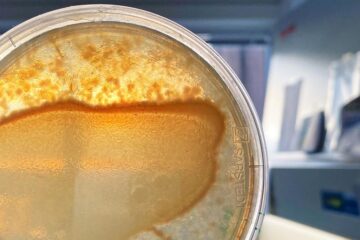Conference on Climate Change Research in Jena

This year, the Max Planck Institute for Biogeochemistry will organize the conference, which takes place every four years since 1981.
High precision measurements of the atmospheric carbon dioxide concentration were initiated at the Mauna Loa (Hawaii) and the south pole more than 50 years ago, documenting the steady rise of this green house gas in the Earth's atmosphere. Carbon dioxide is considered to be the main cause for global change – the consequences of which can already be seen on the regional and global level.
Since then, the scientific interest in the analysis of the global carbon cycle and its human-induced changes has grown exponentially. Global research on the carbon cycle has been further intensified by the acknowledgment of carbon dioxide as main reason for the present and future warming of the Earth's climate by the International Panel on Global Change, which in turn led to international initiatives to reduce CO2 emissions like the Kyoto protocol.
During the conference in Jena, researchers from a variety of disciplines will discuss recent and future changes in the atmospheric CO2 concentration and the role of fossil fuel emissions, the advances in the development of measurement techniques and climate models as well as regional studies and the understanding of the fundamental processes involved.
The Max Planck Institute for Biogeochemistry plays an important role in international climate change research – it deals for example with the analysis of feedback mechanisms between global biogeochemical cycles and the climate system. High precision measurement instruments are used to detect concentration changes of trace gases like carbon dioxide, carbon monoxide, methane, oxygen and hydrogen in the atmosphere. The measurement results yield information concerning their release on the Earth's surface, e.g. during combustion processes. Further analysis provide the basis to deter-mine the global carbon balances for the terrestrial biosphere and the ocean. The enhancement of existing computer models via the integration of laboratory and field research results as well as past and present observational data aims at creating reliable climate simulations for the future.
Max Planck Institute for Biogeochemistry
P.O. Box 10 01 64
07701 Jena
Hans-Knöll-Straße 10
07745 Jena
Germany
Phone: +49-(0)3641-57-60
Fax: +49-(0)3641-57-70
Web: www.bgc-jena.mpg.de
Contact:
Prof. Dr. Martin Heimann
Phone: +49-(0)3641-57-6350
Fax: +49-(0)3641-57-67300
email: martin.heimann@bgc-jena.mpg.de
Dr. Angelika Thuille
Phone: +49-(0)3641-57-6107
Fax: +49-(0)3641-57-70
email: athuille@bgc-jena.mpg.de
Media Contact
Weitere Informationen:
http://www.bgc-jena.mpg.deAlle Nachrichten aus der Kategorie: Veranstaltungsnachrichten
Neueste Beiträge

Das Mikrobiom verändert sich dynamisch und begünstigt wichtige Funktionen für den Wirt
Ein interdisziplinäres Forschungsteam des Kieler SFB 1182 untersucht am Beispiel von Fadenwürmern, welche Prozesse die Zusammensetzung des Mikrobioms in Wirtslebewesen steuern. Alle vielzelligen Lebewesen – von den einfachsten tierischen und…

Wasser im Boden – genaue Daten für Landwirtschaft und Klimaforschung
Die PTB präsentiert auf der Woche der Umwelt, wie sich die Bodenfeuchte mithilfe von Neutronenstrahlung messen lässt. Die Bodenfeuchte hat nicht nur Auswirkungen auf die Landwirtschaft, sondern ist als Teil…

Bioreaktor- und Kryotechnologien für bessere Wirkstofftests mit humanen Zellkulturen
Medizinische Wirkstoffforschung… Viele Neuentwicklungen von medizinischen Wirkstoffen scheitern, weil trotz erfolgreicher Labortests mit Zellkulturen starke Nebenwirkungen bei Probanden auftreten. Dies kann passieren, wenn zum Beispiel die verwendeten Zellen aus tierischem…





















